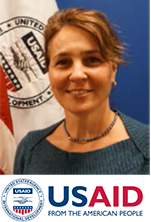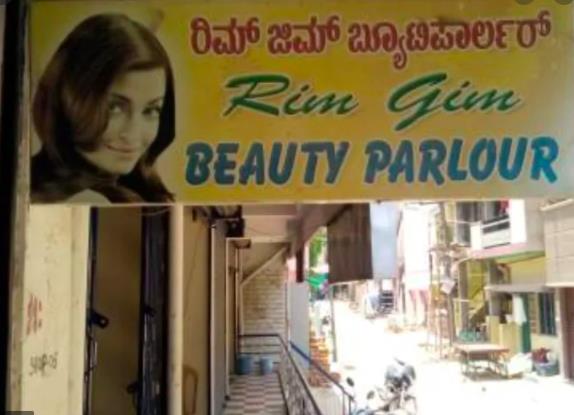
About
USAID and the Author
USAID is the world's premier international development agency and a catalytic actor driving development results. USAID's work advances U.S. national security and economic prosperity, demonstrates American generosity, and promotes a path to recipient self-reliance and resilience. The author of this article is USAID’s Acting Mission Director to India. She is a career member of the U.S. Senior Foreign Service and has been with USAID for 20 years. Before joining USAID/India as the Deputy Mission Director in July 2017, Ramona was posted in Addis Ababa, Ethiopia, where she served as USAID Deputy Mission Director.
Recent Blended Finance Initiatives in India
An Op-Ed by By Ramona El Hamzaoui, Acting Mission Director, USAID/India
Private sector engagement, led by the United States Agency for International Development (USAID), is a cornerstone of the U.S. development strategy in India. India’s vibrant private sector, mature financial markets, creative entrepreneurs and brilliant innovators have proven to be a robust environment for USAID to test several innovative financing tools that have catalyzed private capital for development. These include blended finance instruments such as partial credit guarantees, technical assistance, and pay-for-performance instruments.
Blended finance, defined as the strategic use of philanthropic and public funds to mobilize private capital to achieve development outcomes, is a promising tool to bridge the financing gap in development. In addition to channeling increased funding towards development outcomes, blended finance offers several other benefits. For example, it can improve the sustainability of an intervention by catalyzing investments that can be scaled and replicated by the private sector even after the exit of donor capital. It can also stimulate innovation in high-impact sectors and foster the development of domestic markets, advancing a country's self-reliance.
Most recently, USAID/India has supported two innovative blended finance platforms, REVIVE and SAMRIDH, that address the impacts of COVID-19 on the informal economy and the healthcare sector respectively.
REVIVE
During the COVID-19 pandemic, many millions of individuals employed in the informal sector lost their jobs. With mounting household expenditures and restrictions on movement that prevented them from seeking alternative employment, many needed urgent access to financial resources to simply stay afloat. Additionally, many business owners and self-employed individuals facing acute capital constraints experience barriers to accessing formal debt instruments, which reduces their avenues to economic recovery. There is a continued pressing need to provide these individuals and small businesses with access to a combination of customized financial and technical solutions to support their economic needs and financial behaviors.
To address this, in July 2020, Samhita and the Collective Good Foundation founded REVIVE, an $8.5 million blended finance platform. With anchor funders that included USAID, the Michael and Susan Dell Foundation, and the Omidyar Network, and partners, such as the Brihati Foundation (powered by Claris), Godrej Industries, HDFC Capital, RBL Bank, HSBC Bank, SEWA, and others, REVIVE is now the largest corporate and philanthropy-led livelihoods revival alliance in the country. The REVIVE platform offers consumers various financial products, such as returnable grants (zero-interest aid with a moral, not a legal obligation to repay), low-interest loans, and direct benefit transfers, which, unlike traditional instruments, can reach five to seven times more recipients over 4-5 years, with a potential multiplier effect on business and social outcomes for every dollar spent. If consumers’ experience with these products allows them to kickstart their businesses and livelihoods, they may be more likely and able to take on commercial loans and be integrated into the formal financial market in the future. The REVIVE beneficiaries are able to develop a credit history due to the platform taking on the initial risk. They are then able to gain access to other financial services provided by the formal financial sector, and gain greater financial security. REVIVE is supporting inclusive growth by enabling the informal sector with access to financial products and to economically recover from the COVID-19 pandemic.
REVIVE aims to create shared value1 for its philanthropic partners, private sector companies, local lenders and implementation partners by channeling funds to beneficiaries directly, and generating insights into the performance of different financial instruments and potential of the platform as a viable business model.
REVIVE’s goal is to support 100,000 workers in India to address post COVID-19 economic recovery in the informal sector. So far, the platform has supported 24,000 daily wage earners and small business owners, such as street vendors, farmers, beauty entrepreneurs and small retailers through grants, returnable grants and skills training.

One recipient is Anuja Pande2, a 34-year-old woman entrepreneur from Ahmednagar, who experienced a 50 percent decline in revenue from her beauty salon following the COVID-19 lockdown. To re-start her business, she needed capital but was wary of taking a formal loan given India’s depressed economy from the pandemic. REVIVE supported her with returnable grants and loans worth INR 10,000 (approximately US $140) to buy essential supplies and refurbish equipment, potentially paving the way for quicker economic recovery.
REVIVE is particularly focused on reaching youth and women across sectors. For instance, REVIVE is collaborating with the Brihati Foundation (Claris) to support street vendors in Ahmedabad, mostly young women who sell vegetables, plastic items, and garments. Godrej is supporting close to 600 women, like Anuja, in the beauty entrepreneur business. For companies like Godrej and Brihati, REVIVE offers an opportunity to go beyond corporate philanthropy by supporting individuals in their value chain, which translates into collective long-term gains.
REVIVE has succeeded in shifting both business and corporate social responsibility (CSR) conversations from reacting to events, like the COVID-19 pandemic, to investing in long-term and sustainable revival efforts by creating a continuum of capital and a host of supporting interventions, such as skills training. REVIVE is built to address and adapt to the challenges that individuals face as they strive to keep their livelihoods afloat during difficult and uncertain times. In 2021 and beyond, REVIVE hopes to continue helping companies, startups, and investors make their key stakeholders more resilient with the support of non-banking finance companies (NBFCs), NGOs, and bilateral and multilateral agencies.
SAMRIDH
USAID is also supporting a blended financing mechanism that addresses institutional rather than individual challenges. The COVID-19 pandemic has stretched India’s health care system, which already has a high burden of communicable disease like tuberculosis and HIV/AIDS, high maternal and child mortality and morbidity, and systemic challenges ensuring quality care for the most vulnerable. Efforts to augment the health infrastructure, strengthen the capacity of health care providers, and increase access to resources for innovators and manufacturers face significant financing constraints. As the pandemic has taken hold in India, public facilities lack sufficient intensive care unit beds with oxygen and ventilator support and face equipment shortages. At the same time, private sector providers are experiencing huge short-term operating losses due to low volumes and high recurring costs and expenditures. The private health care industry is also finding it difficult to manage payrolls and fixed costs in the current situation due to a reduction in demand for non-COVID-19 services and price caps for COVID-19 care. The increased costs associated with more labor-intensive infection control and need for additional equipment and training are also straining the private health care system.
USAID, in partnership with India’s National Health Authority (NHA), has developed a flexible financing mechanism to address COVID-19 and other emerging health challenges. The SAMRIDH (“prosperous” in English),“blended financing facility” (BFF) combines public and philanthropic funds with commercial capital to fund innovative market-based health solutions that can be scaled rapidly to meet the challenges posed by the pandemic.
Building off of a USAID commitment of $3 million, the BFF for health in India mobilized leading financial institutions and development partners to commit $146 million in grants and loans. The facility will provide manufacturers, suppliers, and health care providers with access to flexible capital and mentoring support to take their cutting-edge solutions to a network of more than 20,000 public and private hospitals that operate under Prime Minister Modi’s Ayushman Bharat (PM-JAY) national healthcare assurance program.
To safeguard the livelihoods, health, and safety of the population during emergencies like the COVID-19 pandemic, collaborative efforts from all stakeholders, including government and the private sector is critical. In countries like India, there are enough government and private sector resources to eventually take innovations to scale. Agencies such as USAID can play a catalytic role, providing seed funding for testing and helping to develop viable business and financing models. The lessons from these blended finance platforms will pave the way forward for many public and private sector collaboration and partnerships in the near-term and in the post-COVID world.